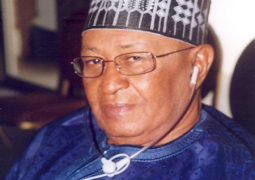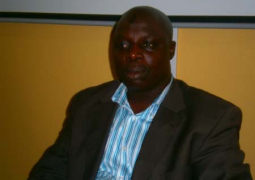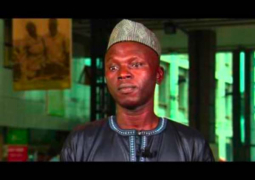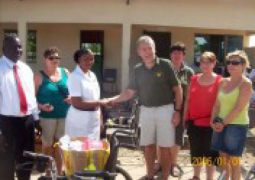The Director General of the Gambia Radio and Television Services (GRTS), Momodou Sanyang, has disclosed that the amount of money owed to the GRTS by some GSM companies stands at almost D2 million.
He was responding to questions before members of the Public Accounts and Public Enterprises committees of the National Assembly on Wednesday.
The Public Accounts and Public Enterprises committees are the National Assembly committees, charged with the responsibility of receiving and scrutinising annual reports and the financial reports of the country’s public institutions for the purpose of accountability.
Mr. Sanyang appeared before the National Assembly committees alongside senior members of the institution, including Marcel Thomasi, a member of the Board of Directors, Momomdou M Jagne, the Administrative Manager, and Lamin Ceesay, the Senior Finance Manager.
They were at the National Assembly chambers to present the annual reports of the GRTS.
Mr. Sanyang in explaining the reports’ contents said that GRTS is faced with challenges, mostly concerning the payment of user fees by some GSM companies.
"The problem we face, Madam Speaker, is that some GSM operators are not paying their users fees, and they owe almost 2 million Dalais to GRTS," Sanyang revealed, and called for the intervention of the National Assembly.
He went on to state that the national broadcasting institution has over the years witnessed significant improvements in terms of coverage, equipped with the latest state-of- the-art technology.
According to Mr. Sanyang, GRTS engages in nationwide coverage of events as a public service, but such coverage has been hindered by shortage of vehicles.
He said the commissioning of the GRTS satellite project has had tremendous effects on the whole system, adding that since the day of its inauguration, they have not encountered any problems.
Mr. Sanyang revealed that plans are in the pipeline to bring in mobile vehicles with transmitters for outside broadcasting, capable of giving live coverage.
He also spoke of the high demand for the services of GRTS, pointing out that "we strategise the use of our cameras, because we have so many requests on the few cameras for coverage."
Mr. Sanyang also asserted that people have seen an improvement in the national television, and that by 2015 when all television should go digital, GRTS is making preparations for that.
"We have four to five well-established studios, so we need talented young Gambian broadcasters," DG Sanyang also informed the deputies.
He also said there are a lot of educational programmes on air, over both the national television and radio stations, adding that the introduction of the new GRTS FM radio channel is another milestone in the transformation of GRTS.
Lamin Ceesay, the Senior Finance Manager at the GRTS also said "GRTS is not service-free," and that the national broadcaster has to gain revenue for sustainability.
He said public service programmes are not charged for, noting that "we only charge profit entities for our services."
Concerning the issue of debt, Mr. Ceesay added that they do not accept debts without payment or before entering into further business, but admitted that these debts are their "biggest concern."
According to Mr. Ceesay, television and radio incomes have greatly increased because there are more sponsors than before, and that the new FM radio is another area of income-generation for the GRTS.
Concerning expenditure, Mr. Ceesay stressed that TV equipment are purchased overseas, and that GRTS also pays other broadcasters or channels for TV rights, since they connect to other channels to view football matches.
At the end of the session, members of both committees, which are jointly sitting, adopted the annual reports of the GRTS.





